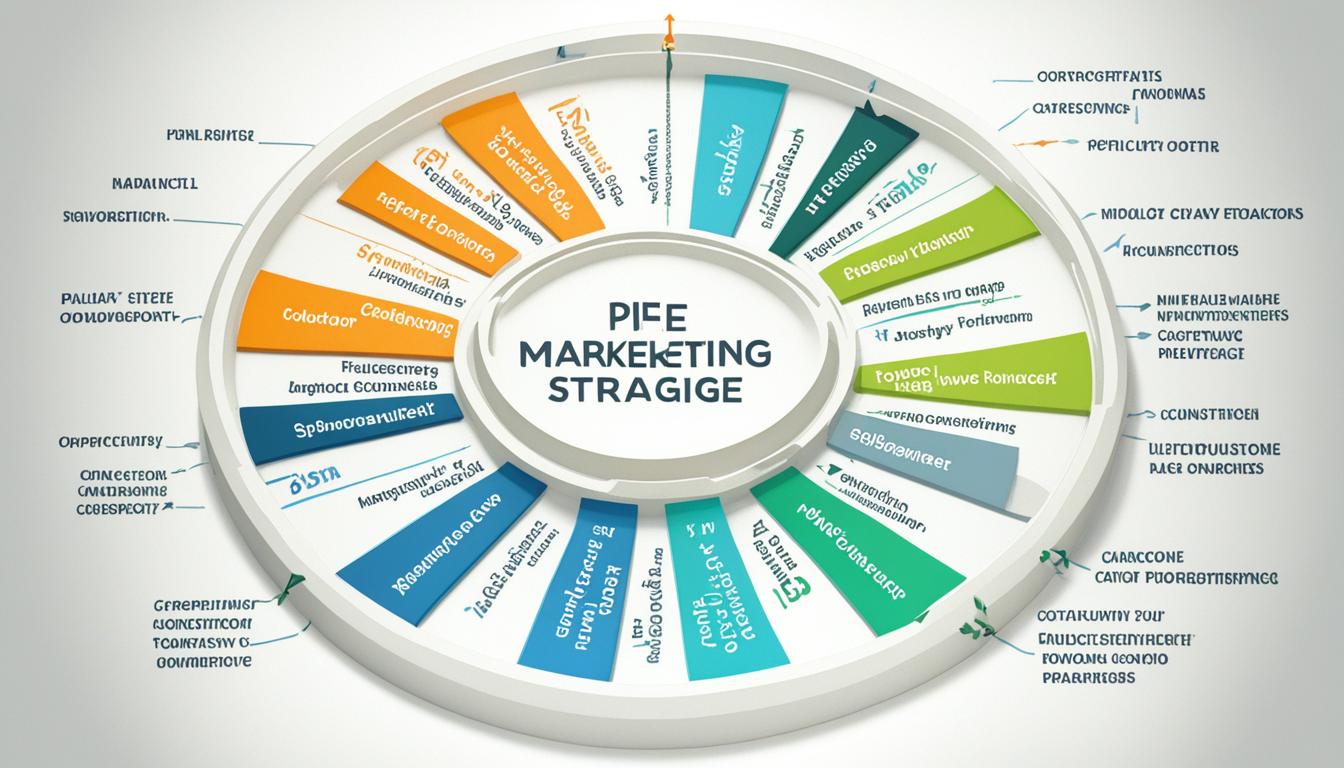In the dynamic world of digital marketing, campaigns play a crucial role in effectively reaching and engaging target audiences. But what exactly is a campaign in digital marketing? Let’s delve into the details and explore everything you need to know about this essential marketing strategy.
A digital marketing campaign encompasses a well-planned and coordinated effort to promote a product, service, or brand to a specific audience through various digital channels. It involves implementing a range of tactics such as search engine optimization (SEO), pay-per-click (PPC) advertising, social media marketing, email marketing, and content marketing to achieve specific marketing objectives.
To execute a successful digital marketing campaign, it is crucial to have clear objectives in place. These objectives should be specific, measurable, and aligned with the overall business goals. Additionally, proper campaign management and optimization strategies are essential for maximizing the impact and ensuring favorable results.
Key to a successful digital marketing campaign is the ability to define and understand the target audience. By identifying the specific demographics, interests, and behaviors of the audience, you can tailor the campaign’s messaging and content to effectively resonate with them.
Consistency is another critical element of a prosperous digital marketing campaign. Maintaining a consistent brand voice, visual identity, and messaging across all channels helps in building brand recognition and trust among the target audience.
Furthermore, a result-oriented digital marketing campaign must include compelling calls-to-action (CTAs) to encourage the audience to take the desired actions. Whether it’s making a purchase, signing up for a newsletter, or requesting more information, effective CTAs are crucial for converting prospects into customers.
Analyzing campaign performance is also vital for optimization. By monitoring campaign metrics such as click-through rates, conversion rates, and return on investment, marketers can identify areas for improvement and make data-backed decisions to enhance campaign effectiveness.
Key Takeaways:
- A digital marketing campaign is a well-planned and coordinated effort to promote a product, service, or brand through various online channels.
- Clear objectives, target audience identification, strategic approaches, and quality content are crucial elements of a successful digital marketing campaign.
- Consistency in brand messaging, effective CTAs, and performance analysis are essential for optimizing campaign results.
- Examples of successful digital marketing campaigns include Gillette’s “The Best Men Can Be” and Coca-Cola’s “Share a Coke.
- Tools such as Google Analytics and email marketing platforms can aid in measuring campaign performance and automation.
Elements of a Successful Digital Marketing Campaign
A successful digital marketing campaign requires clear objectives, a well-defined target audience, a strategic approach, quality content, consistency, effective CTAs, and analytics and optimization. Let’s explore each of these elements in detail:
Clear Objectives
Having clear objectives is crucial for a successful digital marketing campaign. Objectives should be specific, measurable, and aligned with your overall business goals. Whether it’s increasing brand awareness, driving website traffic, or generating leads, setting clear objectives provides focus and direction.
Target Audience
Understanding your target audience is key to creating effective marketing campaigns. Conduct research to identify their demographics, interests, and behaviors. Tailor your message and marketing activities to resonate with your audience, increasing engagement and conversions.
Strategic Approach
A strategic approach involves selecting the right digital channels to reach your target audience. Whether it’s social media, email marketing, SEO, or paid advertising, choosing the most effective channels will maximize your campaign’s reach and impact.
Quality Content
Content is king in digital marketing. Producing high-quality content is essential for engaging and capturing the attention of your audience. This includes well-written copy, compelling visuals, and interactive elements that provide value and resonate with your target audience.
Consistency
Consistency in messaging across all channels helps build brand recognition and trust. Maintain a consistent brand voice and visual identity throughout your campaign. This ensures that your audience recognizes and connects with your brand at every touchpoint.
Effective CTAs
Call-to-actions (CTAs) prompt your audience to take the desired action. Whether it’s signing up for a newsletter, making a purchase, or downloading a resource, effective CTAs guide your audience and help achieve your campaign goals.
Analytics and Optimization
Analyzing data and feedback is essential for optimizing your campaign’s performance. Use analytics tools to track and measure key metrics such as website traffic, conversions, and engagement. Based on these insights, make data-driven decisions to improve the effectiveness of your campaign.
Examples of Successful Digital Marketing Campaigns
Several successful digital marketing campaigns have made a significant impact on audiences worldwide. These campaigns have not only achieved their marketing objectives but have also resonated with the target audience, generated buzz, and sparked important discussions. Let’s take a look at some noteworthy examples:
Gillette’s “The Best Men Can Be”
Gillette’s “The Best Men Can Be” campaign is a perfect example of how a digital marketing campaign can address societal issues while promoting a brand. The campaign tackled the sensitive topic of toxic masculinity, encouraging men to rethink their behavior and be role models for positive change. By leveraging powerful storytelling and thought-provoking visuals, Gillette sparked important discussions and successfully aligned their brand with a cause that resonated with their target audience.
Coca-Cola’s “Share a Coke”
Coca-Cola’s “Share a Coke” campaign exemplifies the power of personalization and user-generated content. The campaign encouraged people to share photos of personalized Coke bottles featuring their names or their friends’ names on social media. This clever marketing strategy not only created a buzz on social platforms but also drove engagement and increased sales. By tapping into the desire for personal connections and sharing moments, Coca-Cola successfully connected with their audience and reinforced their brand’s emotional connection.
Dove’s “ShowUs”
Dove’s “ShowUs” campaign aimed to challenge beauty stereotypes and promote diversity and inclusivity in media and advertising. By partnering with Getty Images and Girlgaze, Dove created an extensive library of diverse and authentic images featuring real people of different backgrounds and sizes. This powerful visual campaign not only showcased the brand’s commitment to inclusivity but also empowered individuals to embrace their unique beauty. By leveraging user-generated content and promoting a positive message, Dove successfully aligned their brand with a meaningful cause and earned the trust of their audience.
ALS’ “Ice Bucket Challenge”
The ALS Association’s “Ice Bucket Challenge” was a viral sensation that took the world by storm. The campaign involved individuals pouring buckets of ice water over themselves, sharing videos on social media, and nominating others to participate or donate to ALS research. This creative and engaging campaign raised awareness about Amyotrophic Lateral Sclerosis (ALS) while raising significant funds for research. The power of social media and peer-to-peer engagement made the “Ice Bucket Challenge” a remarkable success story in the realm of digital marketing campaigns.
Red Bull’s “Stratos”
Red Bull’s “Stratos” campaign exemplifies the brand’s commitment to extreme sports and pushing boundaries. The campaign centered around Felix Baumgartner’s record-breaking freefall from the edge of space, capturing the imagination of millions worldwide. Through captivating videos and behind-the-scenes content, Red Bull invoked a sense of awe, adventure, and achievement. By combining thrilling visuals with their brand values, Red Bull created a successful digital marketing campaign that resonated with their target audience of adrenaline seekers and adventure enthusiasts.
These examples of successful digital marketing campaigns illustrate the power of well-executed strategies, compelling storytelling, and meaningful connections with the audience. By understanding their target audience, leveraging innovative ideas, and aligning with cultural movements or causes, brands can create digital marketing campaigns that drive engagement, generate buzz, and achieve their marketing objectives.
What Are Marketing Campaigns?
Marketing campaigns involve strategic activities that aim to promote a business’s goals or objectives through various channels and platforms. These campaigns utilize different mediums such as print media, social media, online ads, email, and in-person demos to maximize their impact. The objective is to effectively reach the target audience and convey the desired message.
Marketing campaigns can be tailored to promote specific products, services, or even the brand as a whole. Through extensive planning and careful execution, these campaigns help businesses generate awareness, engagement, and ultimately drive sales.
By utilizing different channels, marketers can reach a larger audience and make a lasting impression. Print media allows for targeted advertising in newspapers, magazines, and brochures. Social media platforms provide a wide reach and enable engagement with potential customers. Online ads can be strategically placed on websites or search engines to capture the attention of the target audience. Email campaigns allow for direct communication and personalized messages. In-person demos provide an opportunity to showcase products or services directly to potential customers.
To ensure the success of a marketing campaign, it is crucial to plan extensively. This involves setting clear goals and objectives, defining target audiences, and determining the messaging and strategies to be employed. Market research and analysis are key to understanding customer preferences and developing effective campaigns. Regular evaluation of campaign performance and optimization based on data and feedback play a vital role in achieving desired results.
Benefits of Different Marketing Channels:
| Channel | Benefits |
|---|---|
| Print Media | Targeted advertising, local reach, tangible format. |
| Social Media | Wide reach, engagement opportunities, targeting options. |
| Online Ads | High visibility, precise targeting, performance tracking. |
| Direct communication, personalization, automation. | |
| In-person Demos | Engagement, product/service demonstration, immediate feedback. |
A successful marketing campaign requires a thoughtful and strategic approach. By leveraging different channels and platforms, businesses can maximize their reach and impact. However, it is crucial to carefully plan and execute marketing campaigns to ensure their effectiveness in achieving the desired goals or objectives.
How to Run a Successful Marketing Campaign
Running a successful marketing campaign requires extensive planning. To achieve your desired results, it is crucial to plan extensively and define your end goal. Gather market information to gain insights into your target audience and tailor your campaign accordingly. Determine a timeframe and set measurable metrics to track your progress and evaluate the campaign’s success. Utilizing marketing collaboration tools can enhance team coordination and streamline the campaign management process. In addition, automating repetitive tasks can save time and resources, allowing you to focus on more critical aspects of your campaign. To gain a competitive edge, analyze your competitors’ campaigns to identify their strengths and weaknesses, and apply those valuable insights to refine your own.
https://www.youtube.com/watch?v=hF-pOr7Tro0
Running a successful marketing campaign involves careful planning, timely execution, and continuous optimization. By following these steps and utilizing the right tools and strategies, you can maximize the impact of your campaign and achieve your marketing objectives.
Useful Tools for Marketing Campaigns
When it comes to running successful marketing campaigns, having the right tools at your disposal can make all the difference. In today’s digital landscape, the use of collaborative tools has become increasingly essential, especially with the rise of remote and hybrid working environments.
One of the key aspects of marketing campaigns is effective communication and productivity. Cloud-based applications provide a platform for seamless collaboration, enabling teams to work together efficiently, regardless of their physical location. These tools allow for real-time updates, file sharing, and instant messaging, facilitating smooth coordination and workflow.
Furthermore, robotic process automation (RPA) is an invaluable tool for marketers looking to streamline their processes and save valuable time. RPA automates repetitive tasks, such as data entry and report generation, freeing up resources for more strategic activities. By implementing RPA, marketers can focus on higher-level tasks, such as campaign planning and optimization.
Platforms as a service (PaaS) are another essential component of successful marketing campaigns. PaaS providers offer a range of services that simplify marketing tasks, such as analytics and customer relationship management (CRM). These platforms provide powerful capabilities that enable marketers to analyze campaign performance, track customer interactions, and make data-driven decisions. Google Analytics, for example, offers valuable insights into website traffic, user behavior, and conversion rates, helping marketers understand campaign effectiveness and optimize their strategies accordingly.
Additionally, email marketing tools play a crucial role in automation and communication with customers. By utilizing targeted email campaigns, marketers can send personalized messages, nurture leads, and build customer relationships. These tools enable automation of email sequences, allowing for timely follow-ups and engagement with prospects.
Benefits of Collaborative Tools, Robotic Process Automation, Platforms as a Service, and Email Marketing Tools:
| Tool | Benefits |
|---|---|
| Collaborative tools |
|
| Robotic process automation |
|
| Platforms as a service |
|
| Email marketing tools |
|
By leveraging these useful tools, marketers can maximize the effectiveness and efficiency of their marketing campaigns. Collaborative tools enhance communication and collaboration in remote or hybrid working environments. Cloud-based applications, robotic process automation, platforms as a service, and email marketing tools all contribute to streamlining processes, simplifying tasks, and improving overall campaign performance.
Examples of Successful Marketing Campaigns
When it comes to successful marketing campaigns, two notable examples stand out: Nike’s “Just Do It” and Always’ “Like a Girl”. These campaigns have not only achieved significant success but have also left a lasting impact on their audiences.
Nike’s “Just Do It”
Nike’s “Just Do It” campaign has become synonymous with the brand and has been instrumental in promoting exercise and targeting people’s emotions. The campaign’s simple yet powerful phrase, “Just Do It,” serves as a call-to-action that resonates with audiences on a deep level. By encouraging individuals to push past their limits and take action, Nike has successfully connected with its target audience and inspired a culture of determination and perseverance.
Always’ “Like a Girl”
Always’ “Like a Girl” campaign tackled social issues and empowered girls while aligning with the brand’s commitment to education about puberty. The campaign challenged stereotypes surrounding the phrase “like a girl” and redefined it as a symbol of strength and resilience. By shifting perceptions and inspiring girls to embrace their abilities, Always not only connected with their target audience but also sparked important conversations about gender equality and self-confidence.
Both Nike’s “Just Do It” and Always’ “Like a Girl” campaigns exemplify the power of authentic storytelling and connecting with the emotions of the target audience. These campaigns have not only achieved commercial success but have also made a positive impact on society.
| Category | Nike’s “Just Do It” | Always’ “Like a Girl” |
|---|---|---|
| Brand Message | Encouraging determination and action | Empowering girls and challenging stereotypes |
| Impact | Created a culture of active lifestyles | Started important conversations about gender equality |
| Audience Engagement | Resonated with individuals seeking motivation | Connected with girls and supporters of gender equality |
| Long-term Effect | Became a timeless slogan associated with Nike | Challenged societal perceptions and inspired confidence |
Final Thoughts on Marketing Campaigns
When it comes to marketing campaigns, thorough research and planning are essential to effectively meet customer expectations. Conducting market research helps identify customer needs and preferences, allowing marketers to tailor their campaigns accordingly. However, it doesn’t end there.
Setting a clear and achievable key campaign goal is crucial for campaign success. This goal serves as a guiding light throughout the entire process, keeping efforts focused and metrics measurable.
Campaign performance analysis plays a vital role in improving results. Marketers must regularly analyze campaign data, identify what works and what doesn’t, and make adjustments based on these insights. This iterative approach ensures continuous improvement and maximizes the impact of marketing campaigns.
The Importance of Market Research
Market research is the foundation of well-researched campaign plans. By understanding the market landscape, target audience, and competitors, marketers can create more targeted and impactful campaigns.
Market research helps identify customer pain points, preferences, and behaviors, providing valuable insights for crafting compelling messages and offers. It enables marketers to position their products or services effectively and develop strategies that resonate with the target audience.
Strategic Planning for Success
Successful marketing campaigns require strategic planning and a deep understanding of customer expectations. By aligning campaign elements with customer needs and preferences, marketers can create engaging and relevant experiences that drive results.
Whether it’s the choice of channels, messaging, or content strategy, every aspect of the campaign should be carefully planned to maximize impact. Consistency across different touchpoints and channels helps build trust and brand recognition, leading to stronger campaign performance.
Continuous Improvement for Optimal Results
Improving campaign results involves a continuous cycle of analysis, optimization, and adaptation. By utilizing campaign performance metrics, marketers can identify areas of improvement and implement changes to enhance campaign effectiveness.
Additionally, seeking inspiration and learning from successful campaigns in the industry can provide insights and fresh ideas to improve future marketing efforts.
With focus, creativity, and a data-driven approach, marketers can achieve great results in their marketing campaigns, connecting with their target audience and driving desired outcomes.
Conclusion
Digital marketing campaigns are powerful tools for businesses to reach their target audiences and achieve marketing objectives. In order to run a successful campaign, careful planning and clear objectives are crucial. Businesses must also prioritize audience targeting, employing strategic approaches, delivering quality content, maintaining consistency, including effective call-to-actions (CTAs), and utilizing analytics for optimization.
Several examples of successful campaigns highlight the effectiveness of these strategies. Gillette’s “The Best Men Can Be” campaign, Coca-Cola’s “Share a Coke,” and Nike’s iconic “Just Do It” campaign have all left a lasting impact on their target audience. Collaborative and automation tools can enhance the efficiency of marketing campaigns, allowing businesses to streamline processes and increase productivity.
Market research and analysis are integral parts of a successful campaign as they provide valuable insights into customer preferences and help refine marketing strategies. A well-executed marketing campaign can significantly impact brand awareness, engagement, and sales, ultimately driving business growth and success.
By leveraging the right tools, adopting a strategic approach, and continuously optimizing campaigns based on data-driven insights, businesses can create impactful and successful marketing campaigns that effectively connect with their target audience and drive results.


